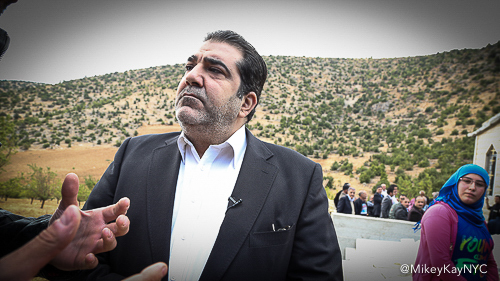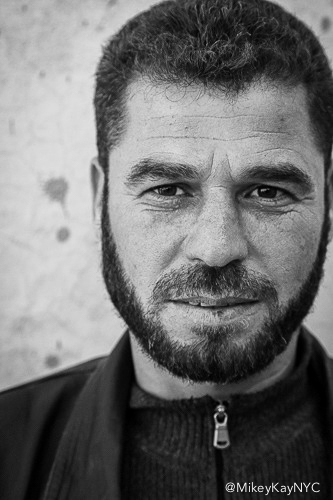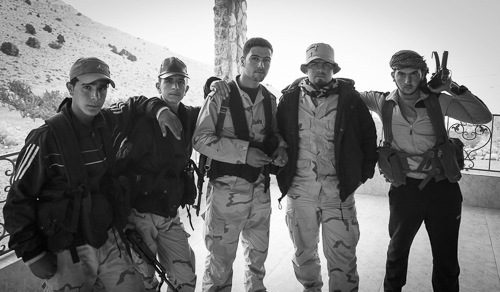The regional response in March 2015, to the advance of Iranian-backed Shia Houthis on the Southern Port of Aden in Yemen exposed two very revealing components of Middle Eastern geo-politics.
The first was the ability of Saudi Arabia to galvanize the Gulf Cooperation Council (GCC) and the Arab League (AL) into forming an 11-country coalition, mobilizing 150,000 troops and wielding over 200 jets with air-to-ground capability and Naval Gun Fire Systems -- all within 48 hours.
Second, was the clear prioritization by the GCC and AL that places Iran as the central threat to regional stability vice the metastasizing lunatics of The Islamic State (I.S.) across North Africa and the Middle East.
Iran's influence is indeed expanding in the region. In October 2013, I spoke to Hezbollah Member of Parliament, Nawar Sahli, in Hermel, just south of the Syrian border, who spoke about the expanding sphere of the Iranian-backed proxy force outside of South Lebanon.
Hezbollah's engagement in the Syrian conflict in support of Bashar al-Assad, was marked by the battle for the strategic town of Qysayr early in 2013, against Free Syrian Army (FSA) and Jabhat al-Nusra rebels. I interviewed members of the Free Syrian Army in the Qalamoun region of Syria on Lebanon's border in October 2013, who confirmed that Hezbollah were not only omnipresent in the area, but wielding a ferocious artillery capability. Abu Khalid (below) commanded approximately 20 fighters, and is, according to sources in Lebanon, now deceased.
Today, as the Syrian civil war enters its fourth year, the threats have become exponentially complex. I.S. has declared the Northern Syrian town of Raqqa its so-called capital with regional territorial aspirations spanning across North Africa and the Middle East. As a consequence, al-Quds Force of the Iranian Revolutionary Guard as well as Hezbollah remain firmly ensconced in Syria.
Undermining the common notion of sectarian strife in the region, Assad is actively avoiding targeting I.S, in a clandestine marketing campaign that supposedly positions his regime as a better alternative to the Syrian people, than the barbaric atrocities of al-Baghdadi's henchmen. You would be totally within your rights to question the difference between the horrendous effects of Assad's indiscriminate barrel bombs versus the systematic executions of I.S. In the Syrian towns of Aleppo and Raqqa, both atrocities are weekly [if not daily] occurrences. Iran, clearly, have a preference.
In Eastern Iraq, Iran is also backing Shia aligned Populist Mobilization Forces, including the Badr organization and the Hezbollah Brigades, that are taking an equally brutal approach to any individual or groups suspected of belonging to, or sympathizing with I.S. The rapid onslaught by I.S. militants across Iraq last summer was greeted by the capitulation of Government of Iraq forces, and the subsequent capture of Mosul and Tikrit by the jihadists. Arguably, had it not been for the Kurdish peshmerga and Shia militia forces, Kirkuk, Erbil and the provinces of Diyala and Salahuddin would have also fallen, placing I.S firmly at Iran's doorstep.
And what of Iran's interests in Yemen? Recent evidence suggests that I.S has already arrived, whilst an Al Qaeda franchise has been creating instability in the country for 6 years. AQ on the Arabian Peninsular (AQAP) was formed in 2009, is headquartered in Yemen, and has a mandate of conducting terrorist attacks on the West.
The Houthis are a key pillar of volatility in Yemen but as the National Dialogue Conference demonstrated, to ignore the fracturing of society created by decades of Yemeni rule under President Ali Abdullah Saleh, who established an elite foundation imparting wealth and privilege to a minority makes a long-term political solution difficult. Saleh continues to undermine the current displaced President Abdrabu Mansour Hadi to this day.
In the short-term, the relentless bombing of Shia militia in Yemen is redistributing the balance of power in favor of those groups in the South and East more closely aligned to austere interpretations of Sunni Islam and jihadists movements. Moreover, AQ & I.S.'s ability to exploit power vacuums created by intensive military campaigns is a lesson state actors should be weary of.
It is no coincidence that Iran's interests reside in areas that are, or could, succumb to a rising tide, nay tsunami, of cult-like jihadists spewing a demented version of Sunni Islam with dangerous territorial objectives. The Saudi's may think their primary objective of degrading the Houthis and countering the threat of Iranian influence in Yemen is almost done. But if I.S. gain a stronger foothold in the embattled country as an undesired consequence of the Saudi-coalition bombing campaign, the real problem may only just starting.


